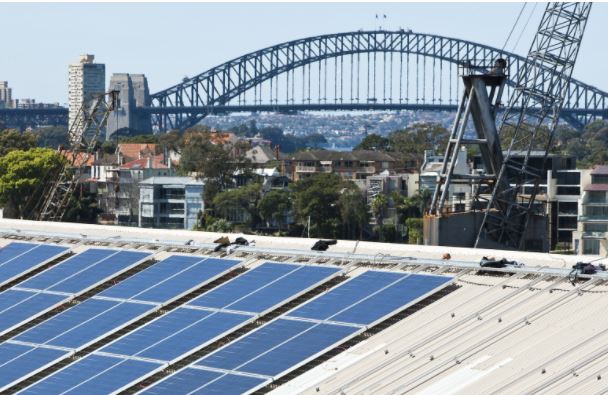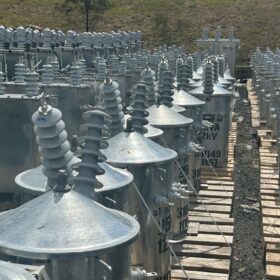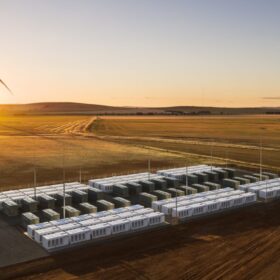With just 54 months until New South Wales (NSW) reaches its 2030 50% emissions reduction target, five councils are taking matters into their own hands to mandate the electrification of all new buildings, except industrial, with the latest in unison to Victorian electrification efforts.
Most recently, the City of Sydney council has joined four local governments in proposing to mandate the electrification of new buildings, proposing new planning rules will require new residential buildings by 2026, and large commercial buildings, by 1 January 2027 to be electrified and gas-free.
The first deadline in a raft of electrification changes is 1 January 2026, when new residential developments will need to ensure their indoor appliances (cooking and heating) are electric, and in a broader proposal yet to be issued for public exhibition, will also include outdoor appliances (heaters).
Sydney Lord Clover Moore said ensuring all-electric buildings is a logical step away from relying on fossil fuel gas which is bad for the planet, finances, and health.
“These changes will create healthier and more energy-efficient buildings which will meet future energy standards and avoid expensive retrofitting,” Moore said.
“They also spare households from being locked into increasingly expensive gas prices and potential shortages.”
The measures align with the NSW Sustainability State Environmental Planning Policy which encourages the design and delivery of sustainable buildings, however, won’t apply to industrial uses or existing buildings.
Sydney-based independent solar advocacy group Solar Citizens welcomed the city’s electrification plan highlighting it joins the City of Parramatta, Lane Cove Council, City of Newcastle, and Waverley Council implementing mandatory building electrification policies.
Solar Citizens Chief Executive Officer Heidi Lee Douglas said households with the cheapest energy and fuel bills are the homes with solar on the roof, a battery behind the meter, an electric vehicle on the driveway, and efficient all-electric appliances.
“As we progress towards an electricity grid powered by renewables, household electrification is an essential part of the clean energy transition,” Douglas said
“While the electricity grid is on a path to 82% renewable energy, the gas network might only reach 10% renewable and will only get more expensive.”
Solar Citizens has lobbied the NSW Government for clean energy mandates for new homes and apartments, including mandatory rooftop solar backed by storage, electric vehicle charging, and efficient, all-electric appliances.
“However, no action has been taken by the state government to ensure that these new homes will deliver on clean energy and transport,” Douglas said.
“The Minns Government is determined to build more high-density housing – with 60,000 new apartments due to be approved before November 2027 under the Transport Oriented Development Program – yet has failed to consider how future residents will be able to access clean energy with reduced energy bills.”
Douglas added that on one hand, the NSW Government has committed to start getting homes and businesses off gas from 2026 under their Gas Decarbonisation Roadmap, whereas on the other they are refusing to take any action to prevent new homes being built with inefficient, expensive gas appliances.
Victoria’s gas substitution roadmap, since 2024, also prohibits new gas connections to new dwellings, apartment buildings and residential subdivisions, and has recently allocated $5 million (USD 3.2 million) to expand on-farm electrificaton and $5 million to expand electrification training for plumbers, electricians and other trades.
This content is protected by copyright and may not be reused. If you want to cooperate with us and would like to reuse some of our content, please contact: editors@pv-magazine.com.









1 comment
By submitting this form you agree to pv magazine using your data for the purposes of publishing your comment.
Your personal data will only be disclosed or otherwise transmitted to third parties for the purposes of spam filtering or if this is necessary for technical maintenance of the website. Any other transfer to third parties will not take place unless this is justified on the basis of applicable data protection regulations or if pv magazine is legally obliged to do so.
You may revoke this consent at any time with effect for the future, in which case your personal data will be deleted immediately. Otherwise, your data will be deleted if pv magazine has processed your request or the purpose of data storage is fulfilled.
Further information on data privacy can be found in our Data Protection Policy.